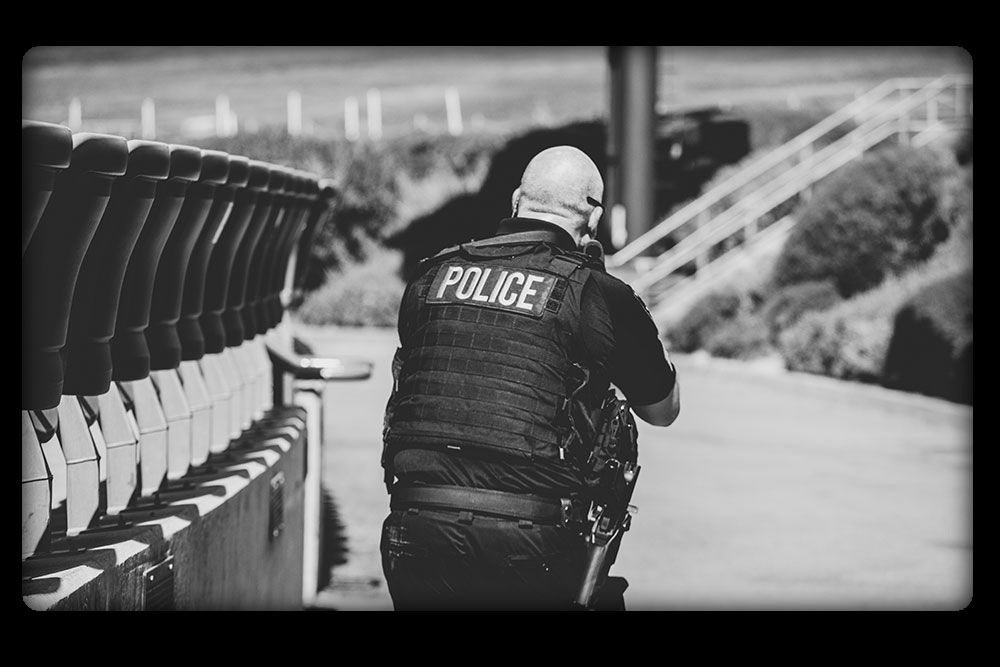Promising Practice:
Tucson Police Department: New Supervisor Program

![Tucson Police [Logo] Tucson, AZ Police Department](/assets/images/CRTimages/tucson_215px.png) The Tucson Police Department developed a 52-week supervisory program for new sergeants, lasting the entire probationary period. The program includes a 40-hour training block at the Academy that provides instruction on leadership skills, transitioning from officer to sergeant, conflict resolution, communication skills, scene management, community interaction, and more. The Tucson Police Department developed a 52-week supervisory program for new sergeants, lasting the entire probationary period. The program includes a 40-hour training block at the Academy that provides instruction on leadership skills, transitioning from officer to sergeant, conflict resolution, communication skills, scene management, community interaction, and more.
Multiple scenarios are included in the training, including ones on critical incidents like barricade situations, active shooter and clearing buildings, officer involved shooting incidents, and responding to use-of-force situations. The training block is followed by 10 weeks of field training, with a focus on three main topics:
- Critical Incident Response/Crime Scene Management
- Community Engagement
- Employee Management
 The remainder of the probationary period is a training course teaching new sergeants the skills, concepts, and tactics they need to know as a first-line supervisor. Sergeants complete orientations in all areas of the department, such as the Mental Health Support Team, Records department, Legal department, and the Specialized Response Division. New sergeants also receive an orientation from the agency’s Critical Incident Review Board, a group of sworn and non-sworn members who review the facts of major incidents, document lessons learned, and prepare a written report for the Chief. The remainder of the probationary period is a training course teaching new sergeants the skills, concepts, and tactics they need to know as a first-line supervisor. Sergeants complete orientations in all areas of the department, such as the Mental Health Support Team, Records department, Legal department, and the Specialized Response Division. New sergeants also receive an orientation from the agency’s Critical Incident Review Board, a group of sworn and non-sworn members who review the facts of major incidents, document lessons learned, and prepare a written report for the Chief.
The different orientations allow for the sergeants to be exposed to incidents they may not have frequently encountered in their careers thus far, learn more about available resources, and understand the importance of documenting events prior to an actual event unfolding.
Throughout the course, sergeants must complete projects aimed at impacting crime and calls for service in the division to which they are assigned. The projects that focus on Calls for Service target specific locations with a high call volume. Crime Reduction Plans target a larger crime issue in a particular division.
There is also a Community Engagement Program as part of the course. Sergeants partner with a local non-profit/non-governmental organization to learn about the needs of the Tucson community and receive assistance on their Crime Reduction Plan. They must also attend one community association meeting a month and present on crime trends in their division.
These interactions allow the sergeant to appreciate the importance of these community relationships before, during and after a critical event. Sergeants have the opportunity to cultivate these relationships in advance and understand the unique nature of each neighborhood.
The program also includes policy review, administrative training, reading, and journaling assignments.
Every three months, probationary sergeants receive a 360-degree evaluation of their progress, with includes feedback from their direct reports, overlapping personnel, peers, lieutenants, and their assigned captain. This program prepares sergeants for every aspect of their supervisory role, building their leadership skills and giving them the tools to use in any type of incident, including critical incidents.
Helpful Resource:
[ Back to Before a Critical Incident ]
|